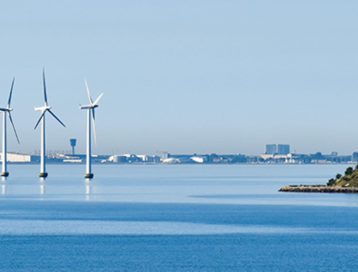SOLUTIONS for emerging pollutants
The range of chemicals in our aquatic ecosystems is increasing. How to deal with the ever-increasing range of chemicals found in our aquatic ecosystems? We do not know enough about them to decide if and to what extent they constitute a risk to human health and aquatic ecosystems.

As a key partner of the SOLUTIONS project (2013-2018), Deltares was coordinating the efforts of some of the best European scientists in this field to create an integrated system of state-of-the-art models and databases to provide a knowledge-based risk assessment of emerging pollutants in Europe’s river basins.
A significant ecological and human health risk
We are becoming more and more aware of the presence of ‘emerging’ pollutants in our surface waters and groundwater. There is evidence to suggest that many emerging pollutants – for which the knowledge base that is currently available is rather limited – may be posing a significant ecological and human health risk through their presence in water bodies. Policymakers and water managers must decide how to address this risk in legislation (including the Water Framework Directive) and in water management practices. Drinking water companies wonder if and to what degree their production processes can keep up with the increasing ubiquity of chemicals.
Improve our understanding and modelling capacity
The SOLUTIONS project provided a common knowledge base that covers a wide range of aquatic pollutants. The focus is on emerging pollutants (pollutants whose potential risk we are only now becoming aware of).
SOLUTIONS improved our understanding and modelling capacity with respect to the sources, transport pathways and fate (including degradation, spatial and temporal variability of concentrations in different compartments) of these pollutants as well as the risks they pose to the environment and human health:
- The emissions and resulting surface water concentrations of thousands of chemicals in European waters were mapped
- The subsequent mixture effects on aquatic species were quantified
- It was demonstrated that such mixture effects explain a noticeable part of the ecological status gradients reported under the Water Framework Directive
Implications for admission of chemicals on the EU market
The EU chemicals strategy aims to better protect citizens and the environment from negative impacts of chemicals. The actions under this strategy include accounting for the cocktail effect of chemicals by a introducing so-called “mixture assessment factor” (MAF) in the admission of new chemicals on the market. The above studies are currently used to support the development of this MAF. This contributes to the Zero Pollution ambition of reducing environmental pollution to levels no longer considered harmful to health and natural ecosystems and of respecting the boundaries our planet can cope with. The above studies are also a first step to quantify the “novel entities” planetary boundary with respect to chemicals on the European scale.
Transparent and evidence-based suggestions for river-basin-specific pollutants
While the chemicals count reaches 10,000s or even 100,000s, water managers may wonder how to act. Together with SOLUTIONS stakeholder ICPDR and research partners, a new approach was developed. This was based on the consideration that there is only a limited number of pathways for emerging contaminants to reach the surface waters. The SOLUTIONS models were further developed to set up transparent and evidence-based emission inventories for a limited set of target chemicals, selected to map “priority pathways”. The approach was fully consistent with the EU Water Framework Directive (WFD) Common Implementation Strategy (CIS). The inventories provided the necessary insight to develop an effective program of measures, supporting the 2021 update of the Danube River Basin management Plan
Downloads
-
Fl2 Capability Statement Anthropogenic Substances a challenge to a resilient and healthy water supply for people and nature in 2030 (1,87 MB)
-
Multiple stressors determine river ecological status at the European scale: Towards an integrated understanding of river status deterioration
-
Species sensitivity distributions for use in environmental protection, assessment, and management of aquatic ecosystems for 12 386 chemicals
-
Computational material flow analysis for thousands of chemicals of emerging concern in European waters
-
EU policy briefs SOLUTIONS
-
SOLUTIONS developed models
-
The SOLUTIONS project: Challenges and responses for present and future emerging pollutants in land and water resources management


